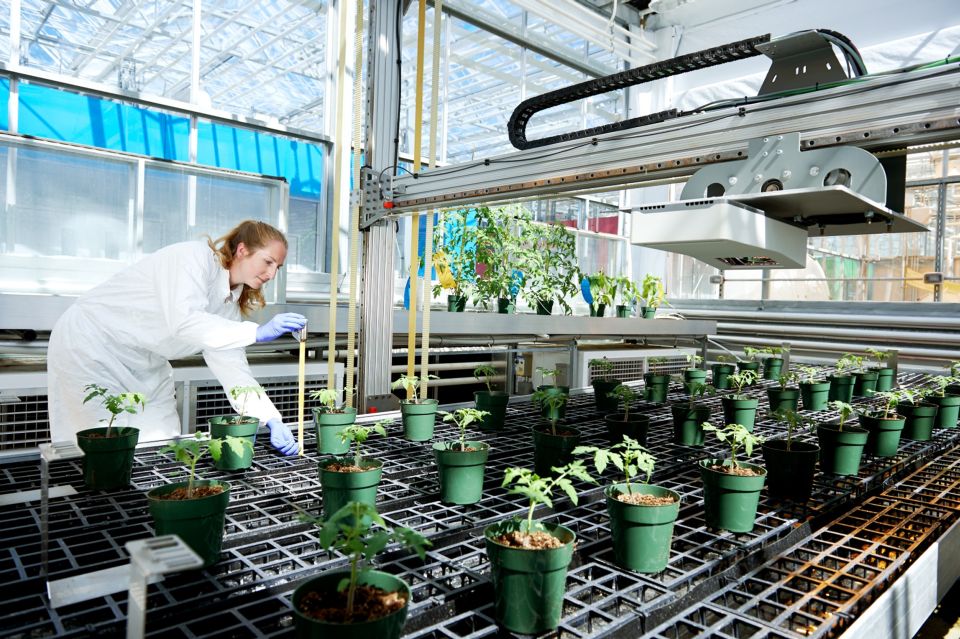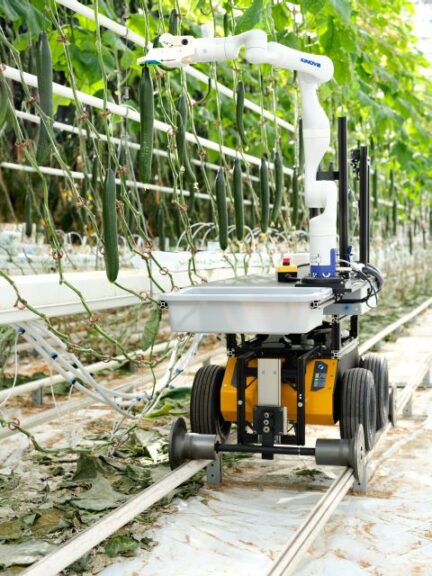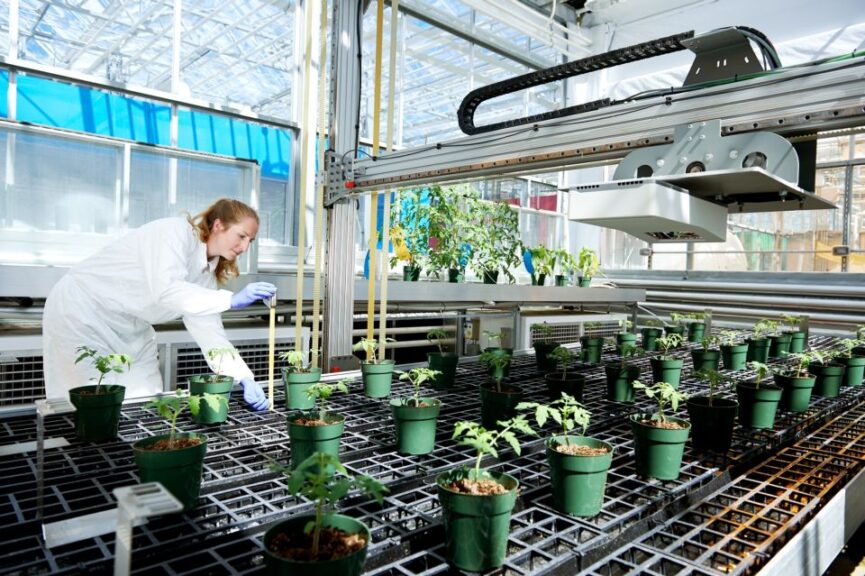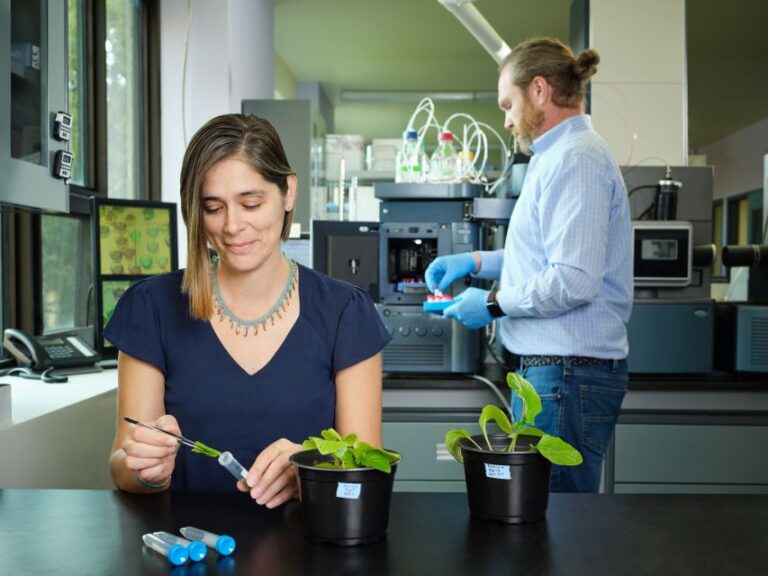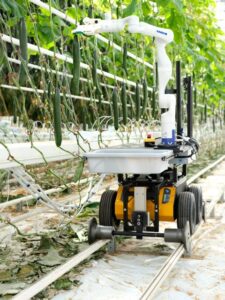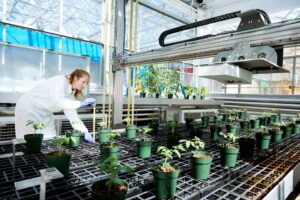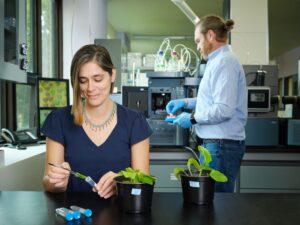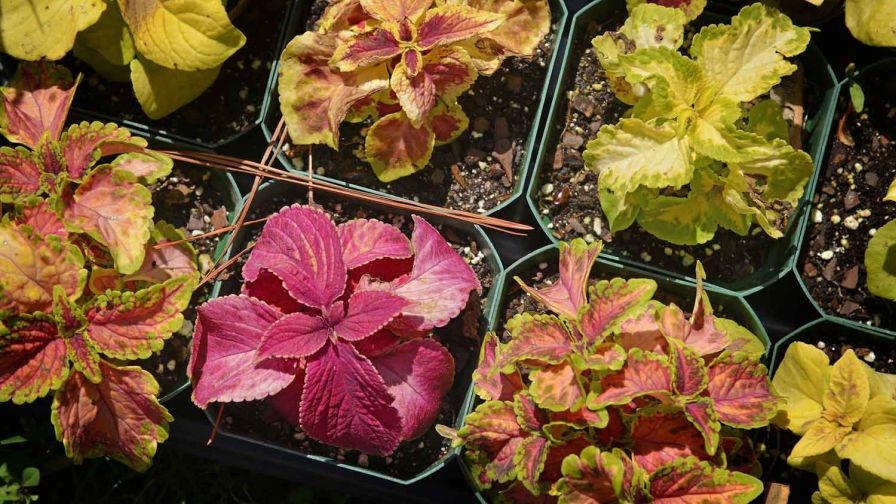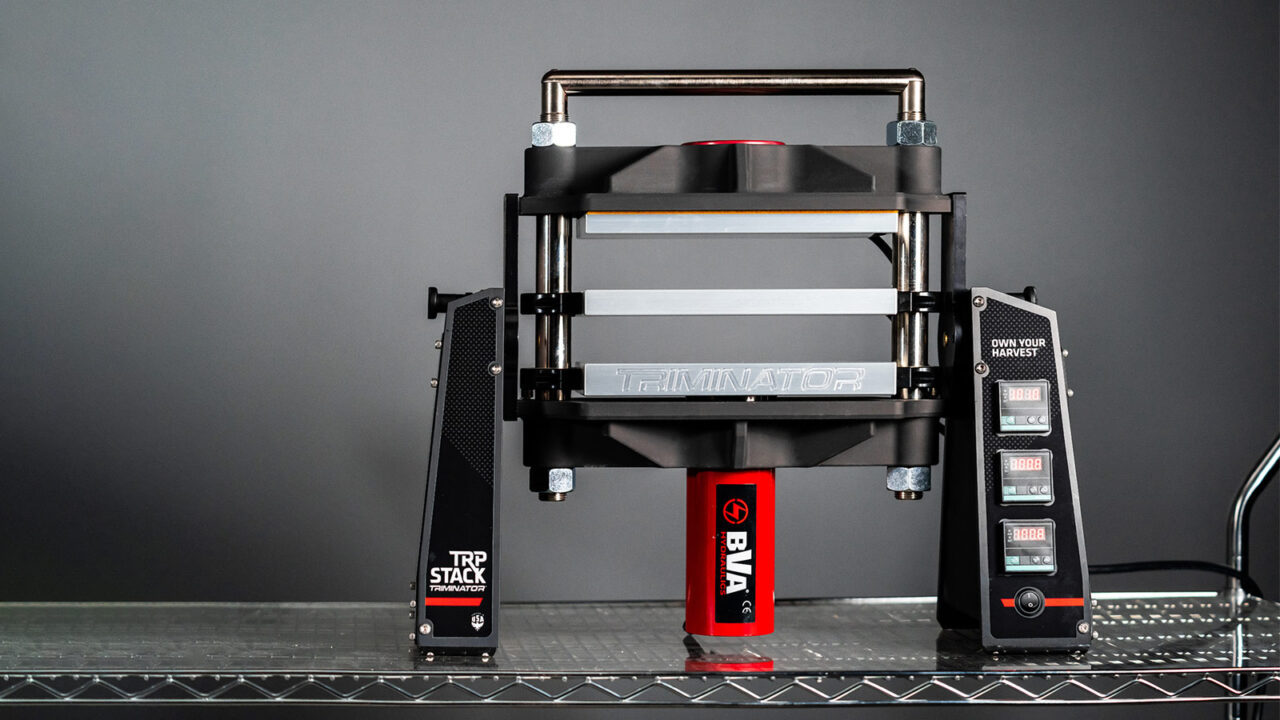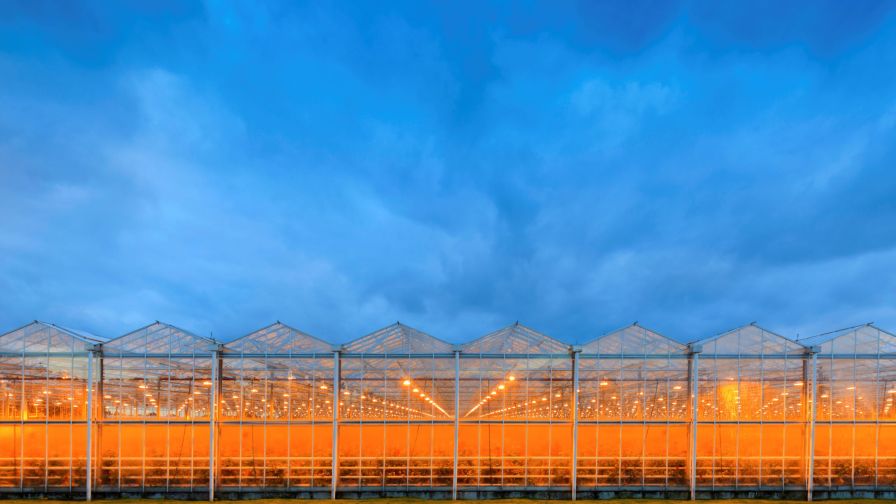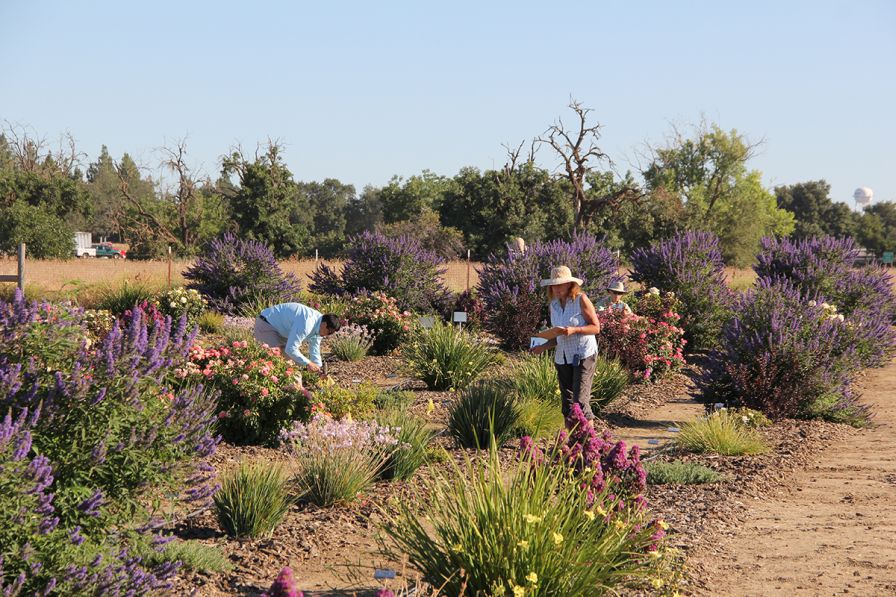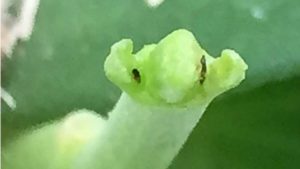Three Ways Vineland Is Innovating the World of Horticulture

The Vineland Research and Innovation Centre’s work with the Canadian horticulture market aims to define and address today’s challenges and opportunities, while also discerning and tackling the unknown questions the industry may face in the next five, 10, 15, and even 20 years. Thinking long term obviously means more uncertainty; however, horticulture in Canada today is strong because of the strategic thinking and decisions made by industry leaders decades ago.
The 2022-2023 Vineland Innovation Report offers a closer look at some of the agency’s major projects and innovations.
“As a core delivery agent for horticultural innovation in Canada, Vineland has honed our sector specific strategic planning skills by carefully targeting the areas where we and our stakeholders believe positive impacts and outcomes can result,” says Ian Potter, President and CEO of Vineland. “These skills utilize Vineland’s core scientific and technical capabilities and also embrace a wider perspective of the future of Canadian horticulture.”
Highlights from this year’s report include:
- A collaborative approach to automation innovation: Canadian horticulture, like most other sectors in agriculture, is suffering from a growing labor shortage. Overall, an agri-food workforce shortfall is predicted to reach more than 123,000 jobs by 2029; as such, the search is on for ways to do more with less. At the same time, labor-intensive horticultural crops increase the cost of labor, often representing 40% to 60% of production costs for growers. That’s why the industry is increasingly turning to solutions to automate certain tasks — addressing the labor crunch while also boosting production efficiencies to help growers remain profitable and competitive. The greenhouse sector, for example, is readily adopting automation for tasks aimed at the management of growing environments, irrigation, and fertigation.
- Speeding up new plant development: A powerful technology developed at Vineland is shortening the amount of time needed to discover and bring new plant varieties to market. Vineland’s proprietary Deep Variant Scanning (DVS) approach is a fast and cost-effective technology allowing plant breeders and seed companies worldwide to speed up the plant breeding process. The spin-off company, Platform Genetics Inc., was launched in 2017 and in the last five years, more than 75 contracts for over 30 crops with more than 30 clients have generated significant revenues, with an excess of 80% of sales originating from clients outside of Canada.
- Opening a window to the inner workings of plants: It might seem counter-intuitive to use science to make plants less nutritious but that’s exactly what researchers at Vineland are working on to help greenhouse growers deal with Western flower thrips, one of the most common pests in horticulture and also one of the most difficult to control. Effective solutions include a good biological control program and also what is called cultural control — manipulating fertilizer rates in the greenhouse to make plants a less appealing food source for pests. Vineland researchers are using metabolomics to determine the most effective way to do this without comprising plant health and crop quality. This analytical method measures as many metabolites or natural chemicals in a plant as possible to determine how and why it reacts the way it does under specific conditions.
You can download the entire report here.




